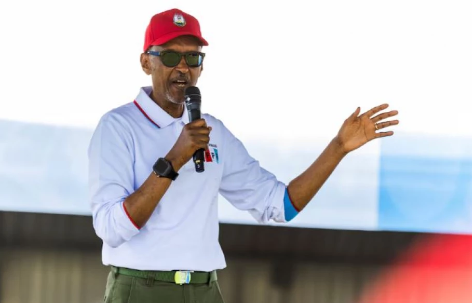In Rwanda, voters went to the polls on Monday to choose their next president, with 66-year-old incumbent Paul Kagame, who has governed the country in central Africa for nearly 25 years, widely expected to win re-election. Polling stations opened at 7 a.m. local time (0500 GMT) for over 9 million eligible voters to cast their ballots for the president and lawmakers, with provisional results anticipated by July 20.
On the ground, many voters expressed support for Kagame, crediting him with steering Rwanda’s 14 million people away from the devastation of the 1994 genocide by prioritizing development and implementing effective social services.
“Kagame has achieved a lot for us … we have security, all children are able to go to school, and they get meals at school,” said Tuyiringirimana Olivier, a construction worker from Rwanda’s southern province.
“That’s why we must support him. I’ve already made my choice. I’m confident Rwanda is moving in the right direction.”
Kagame, who led a rebel movement that ended the genocide and took power in 1994, has been president since 2000. He faces competition from two other candidates, Frank Habineza and Philippe Mpayimana, who also contested the 2017 elections. Other potential candidates critical of Kagame were disqualified, citing reasons such as past criminal convictions.
In the 2017 elections, Kagame secured nearly 99% of the vote following a constitutional amendment that removed term limits, allowing him to run again.
While praised for transforming Rwanda into a thriving economy, Kagame has been criticized by human rights groups and Western nations for restricting media freedom, suppressing opposition, and allegedly supporting rebel groups in neighboring Democratic Republic of Congo.
The Rwandan government denies these allegations, and during his campaign, Kagame pledged to uphold development and stability. Rwanda’s human rights situation gained international attention in 2022 when the country struck a migration deal with the UK to accept thousands of asylum seekers, a move now under review by Britain’s new administration.



